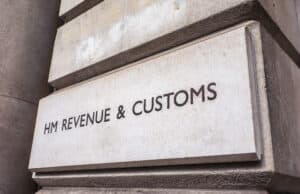UK employers expecting to award pay rises of 3% this year, survey shows

British employers are expecting to award pay rises of 3% in 2022, the highest in at least a decade, though well below the rate of inflation, as they try to recruit and retain workers, according to a new survey of businesses.
The expected pay rise comes amid persistent signs of a tight labour market, with almost two-thirds of employers expecting to have difficulties filling job vacancies in the coming six months, according to a survey of more than 1,000 recruitment and human resources workers by YouGov for the Chartered Institute of Personnel and Development (CIPD).
Pay growth has risen sharply higher than it was before the pandemic, thanks in part to the pace of the economic recovery following coronavirus lockdowns at the start of the pandemic in 2020.
Average weekly earnings rose by 4.2% year on year in the three months to November 2021, faster than at any point between the financial crisis in 2008 and the start of the pandemic in 2020, according to the Office for National Statistics. The latest data on wages and employment will be published on Tuesday, with economists expecting pay growth to slow, but remain above pre-pandemic levels.
The CIPD reported that more than two-thirds of recruiters were expecting to hire by the end of March, and that plans to make workers redundant were lower than before the pandemic.
Almost half of the recruiters surveyed said they were struggling to fill vacancies, and 41% said more staff were leaving – a phenomenon that has been dubbed the “great resignation” as workers look for better opportunities elsewhere. As well as headline pay rises, workers have been able to win other benefits, ranging from hybrid working at home or offices to a four-day week with no loss of pay.
There have been particular difficulties attracting workers in sectors like hospitality, which have been hit by the drop in immigration caused by the pandemic and Brexit. Salaries for jobs in hospitality have increased by up to 12%, with a record number offering a wage of more than £50,000, according to Caterer.com, a recruitment website.
The 3% median pay rise expected by CIPD members would nevertheless result in a real wage cut for many because of price rises across the UK economy.
Inflation has risen to its highest level in 30 years as companies cover rising costs because of supply chain disruptions during the pandemic and a surge in energy prices. Annual consumer prices index inflation hit 5.4% in December, and the Bank of England expects it to rise as high as 7% in the spring.
Jonathan Boys, the CIPD’s labour market economist, said: “Even though businesses anticipate making record pay awards to their employees this year, most people are set to see their real wages fall against the backdrop of high inflation.”
Boys said it was encouraging that more employers were considering other options to keep staff, such as providing flexible working and spending more on training and other perks such as health benefits. Those practices “should reduce wage inflation pressure to a degree”, he said.
Some economists are looking for signs of a so-called wage-price spiral, in which workers demand higher pay to compensate for higher prices for the goods and services they consume – although others say that pay rises are long overdue in many countries.
In the UK, workers have gone through the worst extended period for real wage growth since the Napoleonic wars, and real wages are still less than they were before the financial crisis that started in 2008, according to the Resolution Foundation thinktank. The expected pay rises reported by CIPD members were the highest since at least the winter of 2012, the earliest comparable data.
Andrew Bailey, the governor of the Bank of England, this month provoked fury from unions – and unusually similar front pages for the broadsheet Financial Times and the tabloid Daily Star – after calling for workers to go without pay rises to control inflation. Unions and economists pointed out that Bailey did not call for companies to hold prices steady at the same time.




